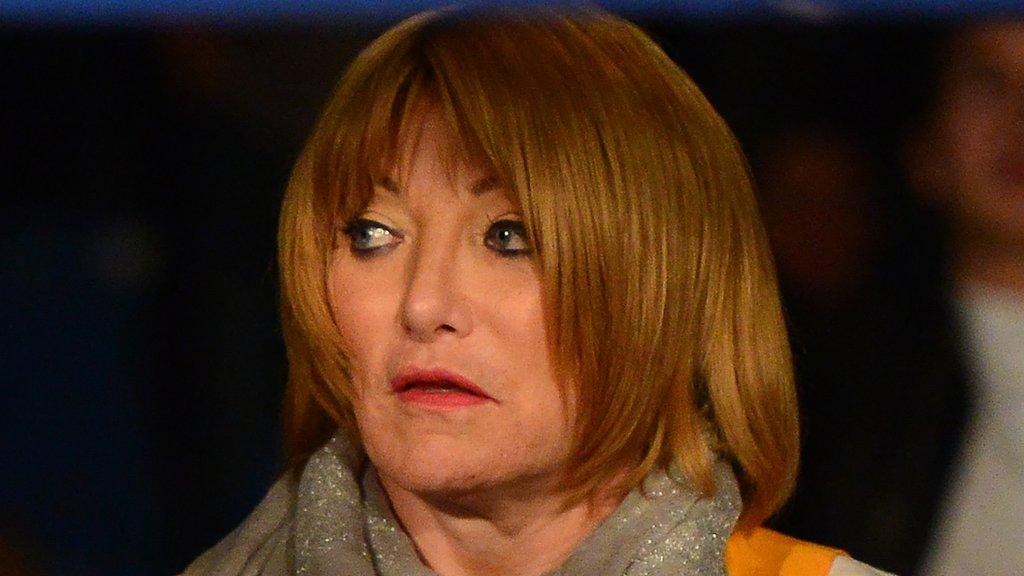Transgender teens: Born in the wrong body
- Published
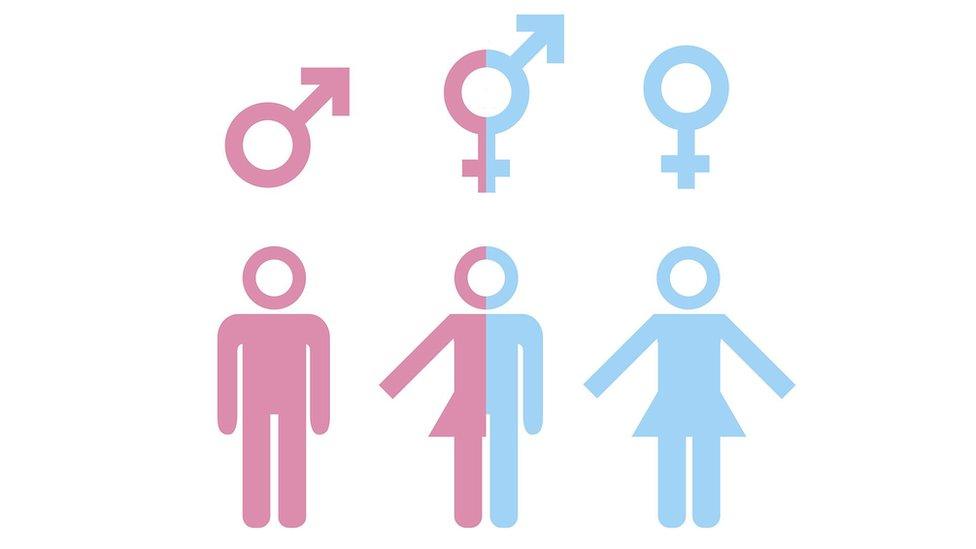
A BBC Radio Ulster documentary will explore what life is like for transgender teens
Transgender issues are in the spotlight now more than ever before.
Figures in the world of entertainment and sport, like American television personality, Caitlyn Jenner and boxing promoter Kellie Maloney have come out as transgender in a very public way.
But what about children and teenagers in Northern Ireland facing the same journey?
A new BBC Radio Ulster documentary explores why some young people believe they were born in the wrong body and the impact it can have on their families.
'Difficult journey'
Andrew is 13 and just like any other teenager, except for one thing - he was born a girl.
At the family home just outside Newry, Andrew told the BBC that he realised that he was a boy at about the age of 11.
"I went through a bit of a hard time, my parents went into my school to tell my teachers, so everyone knew," he said.
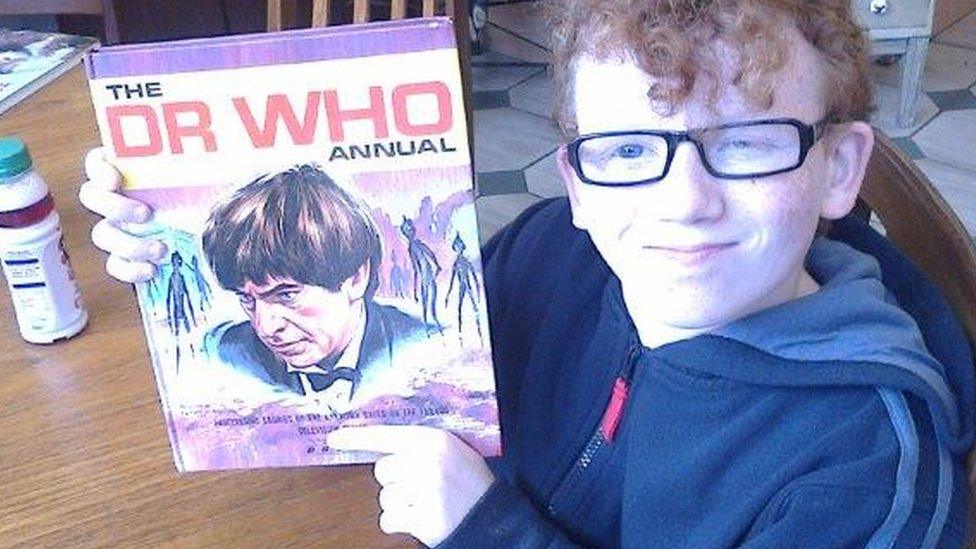
Andrew is 13, he has not had any surgery to change his body
""I cried because I had to wear a school skirt. I thought it was girly - it just wasn't me."
Andrew has not had any surgery to change his body.
Like all adolescents in the UK, he can not do that until he turns 18.
'Emotional turmoil'
But Andrew looks like - and lives as - a boy. His Mum and Dad - Fiona and Ian - say they have known since he was young.
"He never had to make a choice or a decision about this, it just was," they said.
"It is a difficult journey because he is a teenager, but there was no real emotional turmoil for Andrew."
Stephen McPherson's son, Conor, is further along his transgender journey than Andrew.
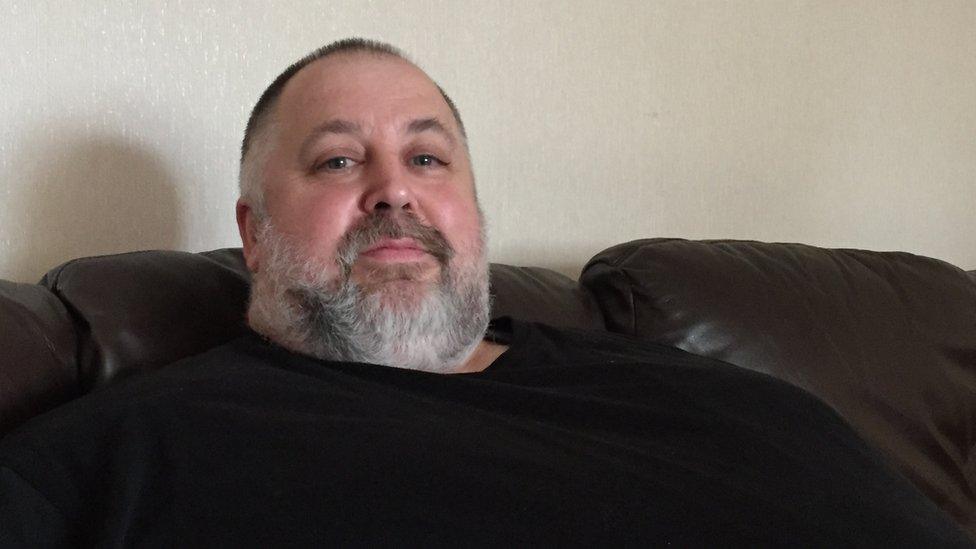
Stephen McPherson says he completely supports his son Conor - who was born female
Conor was born female but realised as a teenager that he identified as being male.
Now a young adult, his parents have fully supported his decision to transition, but Stephen said it has been tough at times.
'Put on a face'
"I personally don't feel I have lost anything because Conor is still here, but my wife was grieving for a daughter that was slowly disappearing," he said.
"You are grieving for someone who is going to come home that day for their dinner, who is going to sit and chat with you - but you can't visibly grieve, you have to put on a face so your son knows that you are supporting him."
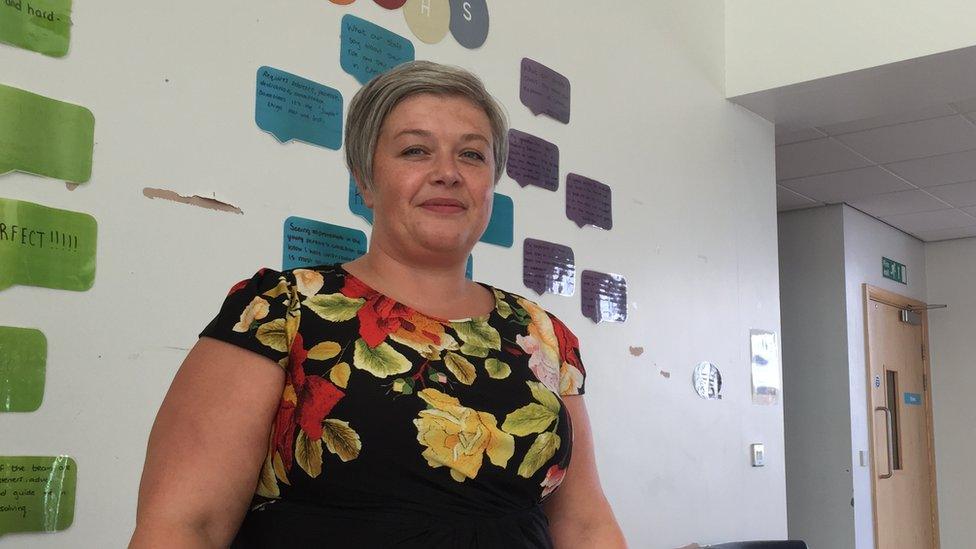
134 young people from across Northern Ireland have sought help from Knowing Our Identity
Until 2014 there was no dedicated NHS service in Nothern Ireland for adolescents struggling with or questioning their gender identity.
That changed when 'Knowing Our Identity' (KOI) was set up at Forster Green Hospital in south Belfast.
Since then, 134 young people from across Northern Ireland have sought help from KOI - that's at least one person every week.
Hormone blockers
KOI manager Billie Hughes said the assessment process was long, detailed and about getting the individual "on the right path".
Drugs known as hormone blockers, which delay puberty, can also be given to young people if they want it.
"They do what they say," said Billie Hughes.
"If it is girls, they block the oestrogen and if it is a male they block the testosterone. It stops things like body hair, breast development and periods."
Billie Hughes added: "This kind of intervention can lead to more successful surgery and physical transition down the line."
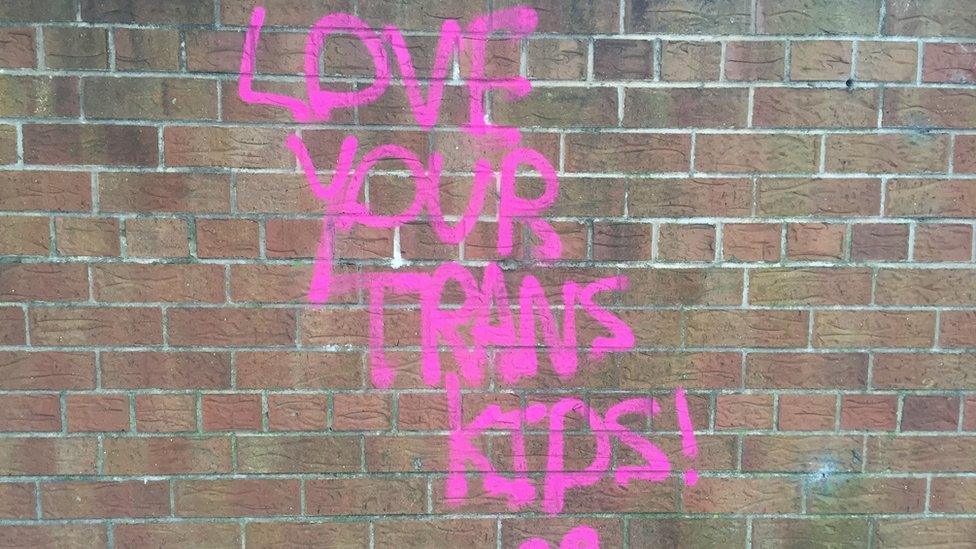
It is currently up to individual schools to decide if they want to raise the subject in classrooms at all
School
One of the fears some parents have is how their transgender child will cope at school. How will teachers and students respond?
Stormont's Department for Education published guidance in 2015. It is suggested that pupils be taught about gender identity issues in a "sensitive and non-confrontational way".
However it is up to individual schools to decide if they want to raise the subject in classrooms.
Ellen Murray from Genderjam NI, a group that supports young transgender people, said more needed to be done.
'Angry parents'
"Schools could do with more guidance and statutory help from the Department for Education," she said.
"Many of them are afraid that if they accommodate a young transgender person, then they will get angry parents on the phone."
But not everyone agrees.
Peter Lynas from the Evangelical Alliance says trangender people should be treated with compassion but he warns against telling schools and students what they should think.
"We do need to talk about language (around transgender issues) but schools are in a very difficult position because they are being asked to affirm or deny somebody's identity," he said.
"They are not really equipped to do that but nonetheless they are forced into it. I think that is problematic."
The Future
Whatever the moral, medical or educational debates around being transgender, for young people here who have transitioned it is about living a happy and authentic life.
Stephen McPherson says his son Conor is where he is meant to be. An outgoing young man, with a fiancee, friends and family who support him.
As for Andrew, he says he is happy and that life is much easier for him as a boy. Dad Ian has some concerns about his son's future but remains optimistic.
"Our worry as parents is the world that Andrew will grow up in. Hopefully it will be more tolerant and knowledgeable about trans issues."
Transgender Teens: Born in the wrong body airs on BBC Radio Ulster at 12:30 BST on Sunday
- Published16 July 2015
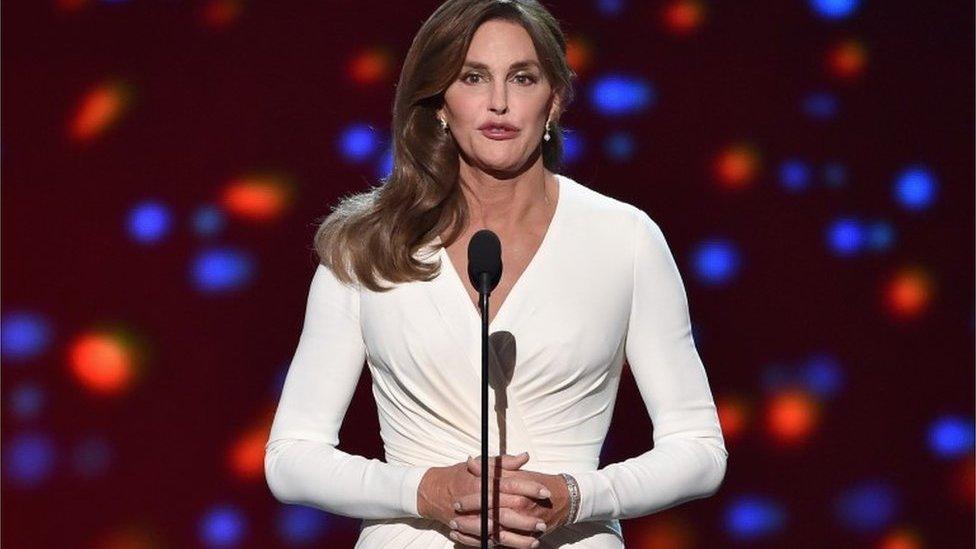
- Attribution
- Published11 June 2016
